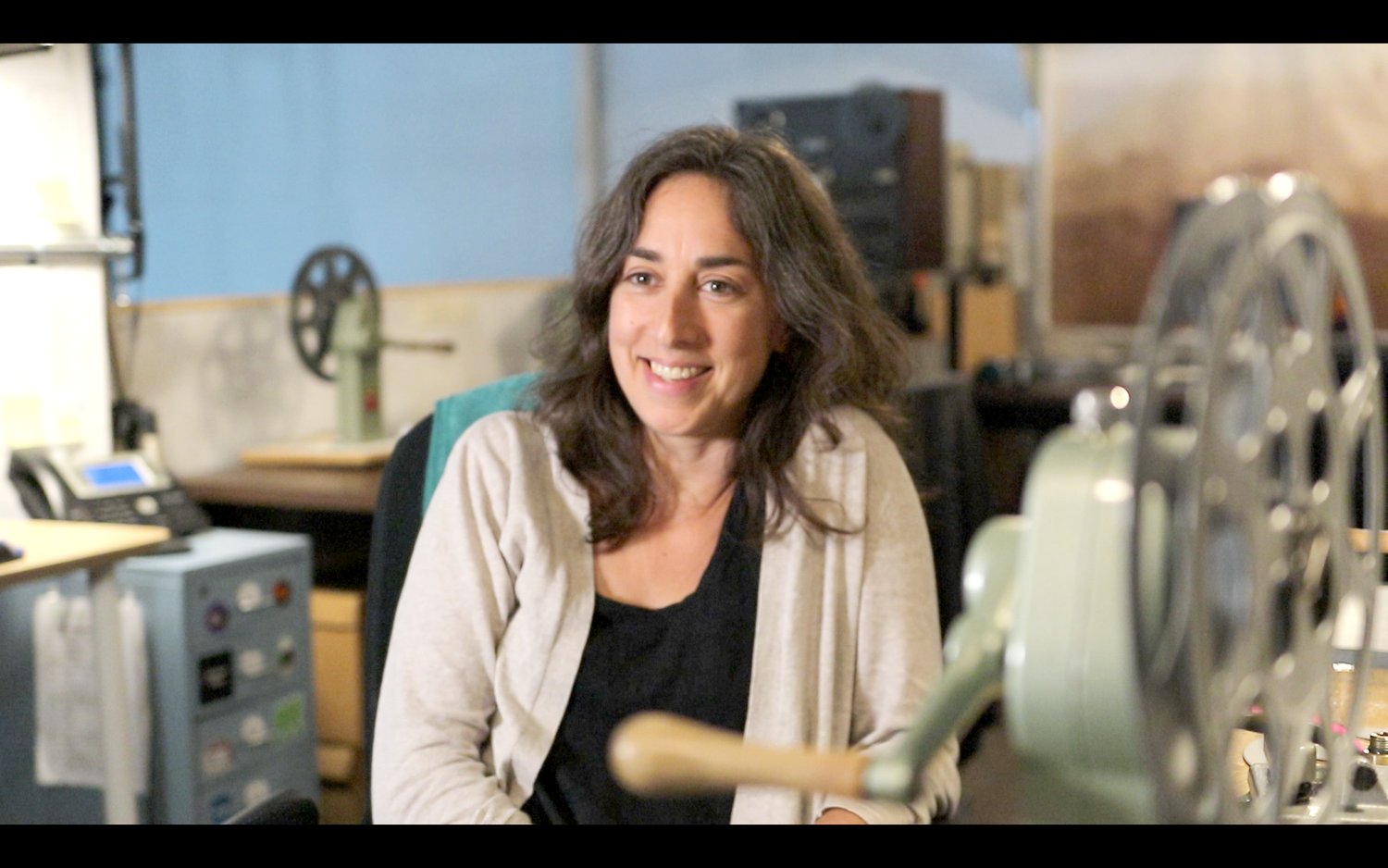Film archivist Becca Bender and R.I.’s hidden history
When Becca Bender arrived in Providence in 2018, the staff at the Rhode Island Historical Society was euphoric. RIHS hadn't employed a film archivist in years.
What’s more, Bender’s curriculum vitae was astonishing. She had worked on Hollywood features, had helped produce documentaries, mainly for PBS, and had a master’s degree in moving image archiving and preservation from New York University. Bender wasn’t a library science major who happened to like movies. She was the real deal.
“I really liked the physicality of film,” says Bender, who studied film production at Vassar College. “I liked that you cut and splice it.”
This hands-on approach has been the hallmark of Bender’s career in Providence. For three years, she has helped RIHS invest in playback equipment. She’s taken on the grueling task of digitizing old film. And she oversees a vast archive of raw news footage, mostly from TV stations WJAR and WPRI, encompassing a total of 9 million feet of acetate plastic.
RIHS has shelf after shelf of 16mm reels, most of which have sat in boxes for decades. Bender’s job is to see what they have, organize it, and put all those moving pictures to meaningful use.
“This is a very different kind of archival collection than anything else we have in this building,” Bender says of RIHS’ headquarters on Hope Street in Providence. “It requires equipment. It requires special training. It requires a lot of time, quite truthfully. That was why they created this position. They knew they had these incredible collections here, but there was very little access to it.”
Bender, 44, is now leading the charge on three major projects, which are not only based on the film archives, but will continue to expand them: Home Movie Day, the Archive Remix Project and the Rhode Island COVID-19 Archive. Each project is designed to engage the public and even invite regular people to contribute. (See related story.)
Bender has another mission as well: to shed light on underrepresented communities. Part of this stems from her childhood in Acton, Massachusetts. Bender does not consider herself religious, but her parents are Jewish and came from New York. Growing up in a predominantly Christian town, Bender felt like an outsider. As she studied film and started to work on documentaries, she was drawn to projects about civil rights figures and African-American history.
“As much as I had a hard time when I was kid,” she says, “it made me into an adult who liked being an outsider. I liked that I was not part of the mainstream. I gravitated toward the stories of people who were also not in the majority.
“So much of being Jewish is, to me, about social justice and activism and equity. Studying African-American history and working with primarily African-American producers and directors just felt like a comfortable fit.”
Bender gives this striking example of outsider history: A documentarian recently asked her to track down footage of the first Providence Pride Parade, in 1976. Bender compared her footage with newspaper articles from the period and learned that the parade faced significant opposition, mostly because it was part of the city’s Bicentennial celebration. A judge ruled in favor of the Pride Parade and its organizers.
“Here’s this incredibly historic event that happened in the face of so many obstacles,” says Bender, “and there’s very little documentation of this event. There weren’t even very many photographs from that parade. We probably have a good 15 minutes of footage that covers this whole story. Our footage is so deeply valuable to the community. It makes this completely buried history visible.”
Identity has taken on new meaning for Bender herself, largely because of her move to Providence. After living nearly 20 years in Brooklyn, New York, Bender realized how much she missed those cultural reference points after moving to Rhode Island. She says she was even startled when someone wished her a “Merry Christmas,” because “happy holidays” is such a standard greeting in multicultural New York.
In Providence bagel shops, employees didn’t know what she meant by “bialy,” a staple in New York bakeries.
So, while it was out of character for her, Bender went to a Providence shul for the High Holy Days, to help her connect with the community. And her annual latke party became an opportunity to cultivate new friendships, both Jewish and otherwise.
“I suddenly felt the need to find Jews in a way I never needed to in New York, because the whole city is kind of Jewish,” Bender said. “I’ve found that I need to be more intentional about what it means to feel Jewish here. For the first time since I was a kid, I feel like I’m part of the diaspora.”
ROBERT ISENBERG (risenberg@jewishallianceri.org) is the multimedia producer for the Jewish Alliance of Greater Rhode Island and a writer for Jewish Rhode Island.








